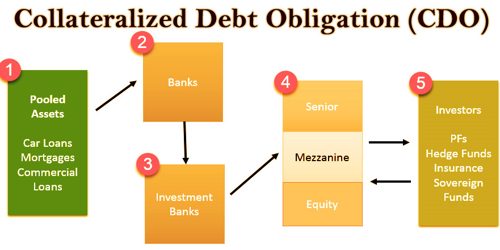Causing Mistaken Foreclosures

By Paul Kiel, ProPublica – May 4, 2010 9:20 pm EDT
Millions of people face losing their homes in the continuing foreclosure crisis, but homeowners often have more than the struggling economy and slumping house prices to worry about: Disorganization within the big banks that service mortgages has made a bad problem worse.
ProPublica is matching local journalists with homeowners having trouble getting loan mods.
Are you a homeowner with a story to tell?
Are you a reporter and want to cover it?
Sometimes the communication breakdown within the banks is so complete that it leads to premature or mistaken foreclosures. Some homeowners, with the help of an attorney or housing counselor, have eventually been able to reverse a foreclosure. Others have lost their homes.
“We believe in many cases people are losing their homes when they should not have,” said Kevin Stein, associate director of the California Reinvestment Coalition, which counts dozens of nonprofits that work with homeowners among its members.
In the worst breakdowns, banks — and other companies that service loans — actually work at cross-purposes, with one arm of the company foreclosing on the home while the other offers help. Servicers say such mistakes are rare and result from the high volume of defaults and foreclosures.
The problems happen even among servicers participating in the administration’s $75 billion foreclosure-prevention program [1]. Servicers operating under the year-old program are forbidden from auctioning someone’s home while a modification decision is pending. It happens anyway.
Consumer advocates say the lapses continue because they go unpunished. “We’ve had too much of the carrot, and we need a stick,” Stein says. The Treasury Department has yet to penalize a servicer for breaking the program’s rules. The program provides federal subsidies to encourage modifications.
Treasury officials overseeing the program say they’re aware of the problems and have moved to fix them. But some states are going further to protect homeowners, with recent rules that stop the foreclosure process if the homeowner requests a modification.
Many homeowners, seeing no other option, have gone to court to reclaim their homes. At least 50 homeowners have recently filed lawsuits alleging the servicer foreclosed with a loan mod request pending or even while they were on a payment plan.
Homeowners have long waits for help
In good times, banks and other servicers — Bank of America is the biggest, followed by Chase and Wells Fargo — were known mainly to homeowners simply as where they sent their monthly mortgage payments. But the companies have been deluged over the past couple of years by requests for help from millions of struggling homeowners.
Homeowners commonly wait six months for an answer on a loan mod application. The federal program for encouraging loan mods includes a three-month trial period, after which servicers are supposed to decide whether to make the modifications permanent. But some homeowners have waited as long as 10 months [2] for a final answer.
Communication breakdowns occur because of the way the servicers are structured. One division typically deals with modifications and another with foreclosures. Servicers also hire a local trustee or attorney to actually pursue foreclosure.
“Often they just simply don’t communicate with each other,” said Laurie Maggiano, the Treasury official in charge of setting policy for the modification program. Such problems were particularly bad last summer, in the first few months of the program, she said. “Basically, you have the right hand at the mortgage company not knowing what the left hand is doing,” said Mark Pearce, North Carolina’s deputy commissioner of banks. Communication glitches and mistakes are “systemic, more than anecdotal” among mortgage servicers, he said.
“We’ve had cases where we’ve informed the mortgage company that they’re about to foreclose on someone.” The experience for the homeowner, he said, can be “Kafkaesque.”
“We’re all human, and the servicers are overworked and trying their best,” said Vicki Vidal, of the Mortgage Bankers Association. She said foreclosure errors are rare, particularly if struggling homeowners are prompt in contacting their servicer.
The Human Face
Frances Gomez, of Tempe, Ariz., lived in her house for over 30 years. Three years ago, she refinanced it with Countrywide, now part of Bank of America, for nearly $300,000. The home’s value has declined dramatically, said Gomez, who put some of the money from the refinancing into her hair salon.
Last year, the recession forced her to close her shop. Gomez fell behind on her mortgage, and after striking out with a company that promised to work with Bank of America to get her a loan mod, she learned in December that her home was scheduled for foreclosure.
So Gomez applied herself. She twice succeeded in getting Bank of America to postpone the sale date and said she was assured it would not happen until her application was reviewed. Gomez had opened a smaller salon and understood there was a good chance she would qualify.
She was still waiting in March when a Realtor, representing the new owner of her home, showed up. Her house had sold at auction — for less than half of what Gomez owed. “They don’t give you an opportunity,” she said. “They just go and do it with no warning.”
It’s not supposed to work that way.
Federal Programs
Under the federal program, which requires servicers to follow a set of guidelines for modifications, servicers must give borrowers a written denial before foreclosing. When Gomez called Bank of America about the sale, she said she was told there was a mistake but nothing could be done. She did get a denial notice [3] — some three weeks after the house was sold and just days before she was evicted.
“I just want people to know what they’re doing,” Gomez, now living with family members, said.
After being contacted by ProPublica, Bank of America reviewed Gomez’s case. Bank spokesman Rick Simon acknowledged that Gomez might not have been told her house would be sold and that the bank made a mistake in denying Gomez, because it did not take into account the income from her new salon business. Simon said a Bank of America representative would seek to negotiate with the new owner of Gomez’s house to see if the sale could be unwound.
Simon said the bank regrets when such mistakes happen due to the “very high volume” of cases and that any errors in Gomez’s case were “inadvertent.”
Timeline: How Michael Hill Almost Lost His Home [4]
Even avoiding a mistaken sale can also be a stressful process.
One day in February, a man approached Ron Bermudez of Emeryville, Calif., in front of his house and told him his home would be sold in a few hours. This came as a shock to Bermudez; Bank of America had told him weeks prior that he’d been approved for a trial modification and the papers would soon arrive. He made a panicked phone call to an attorney, who was able to make sure there was no auction.
Last November, Michael Hill of Lexington, S.C., finally got the call he’d been waiting for. Congratulations, a rep from JPMorgan Chase told him, your trial mortgage modification is approved. Hill’s monthly payment, around $900, would be nearly halved.
Except there was a problem. Chase had foreclosed on Hill’s home a month earlier, and his family was just days away from eviction.
“I listened to her and then I just said, ‘Well, that sounds good,’” recalled Hill, who is married and has two children. “‘Tell me how we’re going to do this, seeing as how you sold the house.’” That, he found out, was news to Chase.
Hill was able to avoid eviction — for now. Chase reversed the sale by paying the man who’d bought the home an extra $19,500 on top of the $86,000 [5] he’d paid at the auction.
After the mistaken foreclosure, he began the trial modification last December. He made those payments, but two months after his trial period was supposed to end, Hill is still waiting for a final answer from Chase.
The miscommunications have continued. He received a letter in January saying that he’d been approved for a permanent modification, but he was then told he’d received it in error.
His family remains partially packed, ready to move should the modification not go through. “I’m on pins and needles every time someone’s knocking on the door or calling,” he said.
Christine Holevas, a Chase spokeswoman, said that Chase had “agreed with Hill’s request to rescind the foreclosure” and was “now reviewing his loan for permanent modification.” She said Chase services “more than 10 million mortgages — the vast majority without a hitch.”
HOPE Hotline
To contest a foreclosure under the federal program, Maggiano, the Treasury official, said a homeowner should call the HOPE Hotline, 888-995-HOPE, a Treasury Department-endorsed hotline staffed by housing counselors. Those counselors can escalate the case if the servicer still won’t correct the problem, she said.
That escalation process has saved “a number” of homeowners from being wrongfully booted out of their homes, Maggiano said. Hill, the South Carolina homeowner, is an example of someone helped by the HOPE Hotline.
Of course, the homeowner must know about the hotline to call it. Gomez, the Arizona homeowner who lost her home to foreclosure, said she’d never heard of it.
Many homeowner advocates say the government’s effort has been largely ineffective at resolving problems with servicers.
“I uniformly hear from attorneys and counseling advocates on the ground that the HOPE Hotline simply parrots back what the servicers have said,” said Alys Cohen, an attorney with the National Consumer Law Center. Cohen said she’d voiced her concerns with Treasury officials, who indicated they’d make improvements.

New rules to offer more protection
Under the current rules for the federal program, servicers have been barred from conducting a foreclosure sale if the homeowner requested a modification, but are allowed to push along the process, even set a sale date. That allows them to foreclose more quickly if they determine the homeowner doesn’t qualify for a modification.
As a result, a homeowner might get a modification offer one day and a foreclosure notice the next. As of March, servicers were pursuing foreclosure on 1.8 million residences, according to LPS Applied Analytics.
Maggiano, the Treasury official, said that’s been confusing for homeowners. Some “just got discouraged and gave up.”
New rules issued by the Treasury in March say the servicer must first give the homeowner a shot at a modification before beginning the process that leads to foreclosure.
They also require the servicer to adopt new policies to prevent mishaps. For instance, the servicer will be required to provide a written certification to its attorney or trustee that the homeowner does not qualify for the federal program before the house can be sold.
Maggiano said the changes resulted from visits to the servicers’ offices last December that allowed Treasury officials to “much better understand (their) inner workings.”
The rules, however, don’t take effect until June. Nor do they apply to hundreds of thousands of homeowners seeking a modification for whom the process leading to foreclosure has already begun. And Treasury has yet to set any penalties for servicers who don’t follow the rules.
Maggiano said Treasury’s new rule struck a balance to help homeowners who were responsive to servicer communications to stay out of foreclosure while not introducing unnecessary delays for servicers. Some borrowers don’t respond at all to offers of help from the servicers until they’re faced with foreclosure, she said.

States Differ
Some states, such as North Carolina, have recently gone further to delay moving toward foreclosure if a homeowner requests a modification. State regulators there passed a law that requires a servicer to halt the process if a homeowner requests a modification.
Pearce, the North Carolina official, said the rule was prompted by the delays homeowners have been facing and puts the burden on the servicers to expeditiously review the request. “They’re in total control.”
Stopping the process not only removes the possibility of a sudden foreclosure, he said, but also stops the accumulation of fees, which build up and can add thousands to the homeowner’s debt as the servicer moves toward foreclosure.
In California, state Sen. Mark Leno, a Democrat from San Francisco, is pushing a bill that would do something similar. The servicers “should be working a lot harder to keep homeowners in their home,” he said.
Assessment
Original article: http://www.propublica.org/feature/disorganization-at-banks-causing-mistaken-foreclosures-050410
Conclusion
Your thoughts and comments on this ME-P are appreciated. Feel free to review our top-left column, and top-right sidebar materials, links, URLs and related websites, too. Then, subscribe to the ME-P. It is fast, free and secure.
Link: http://feeds.feedburner.com/HealthcareFinancialsthePostForcxos
Speaker: If you need a moderator or speaker for an upcoming event, Dr. David E. Marcinko; MBA – Publisher-in-Chief of the Medical Executive-Post – is available for seminar or speaking engagements. Contact: MarcinkoAdvisors@msn.com
OUR OTHER PRINT BOOKS AND RELATED INFORMATION SOURCES:
DICTIONARIES: http://www.springerpub.com/Search/marcinko
PHYSICIANS: www.MedicalBusinessAdvisors.com
PRACTICES: www.BusinessofMedicalPractice.com
HOSPITALS: http://www.crcpress.com/product/isbn/9781466558731
CLINICS: http://www.crcpress.com/product/isbn/9781439879900
BLOG: www.MedicalExecutivePost.com
FINANCE: Financial Planning for Physicians and Advisors
INSURANCE: Risk Management and Insurance Strategies for Physicians and Advisors


Filed under: Breaking News, Financial Planning, Interviews | Tagged: bad mortgages, bank, Bank of America, banking reform, California Reinvestment Coalition, Chase, foreclosures, JPMorgan Chase, Kevin Stein, Laurie Maggiano, loan modifications, Mark Pearce, Mortgage Bankers Association, Paul Kiel, ProPublica, Vicki Vidal, Wells Fargo | 18 Comments »


























